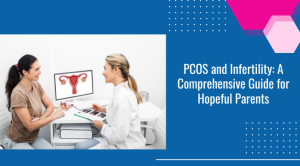PCOD (Polycystic Ovary Syndrome) is a general health state that causes hormonal problems and disparities in metabolism.
It is a common health condition encountered by a many women of childbirth age. It can also cause several crucial health challenges, like depression, cardiovascular issues, and diabetes, and also increases the chances of endometrial cancer.
Few research has proven that a proper diet can help in decreasing the effect of PCOD. Learn more about diet food for PCOD in this article.
In what way does diet affect PCOD?
Insulin resistance and production and weight management are the two main ways that diet affects PCOD.
Insulin has an immense impact on PCOD, so controlling insulin levels with the help of the best diet food for PCOD is one of the finest steps people can put forward to control the condition.
Several people with PCOD develop pre-diabetes or diabetes before 40 years of age. Diabetes is allied to how the human body summons insulin.
Following a proper diet that helps you to fulfill your nutritional requirements, maintain a balanced weight, and improve better insulin levels can help PCOD patients feel good.
Foods to eat
Many studies have proven that the patient’s diet has a great impact on PCOD. As for now, there is no particular diet for PCOD.
Although, there is common acceptance about which foods are good and likely to help a patient improve their situation, and which ones to avoid.
Three diets that might help PCOD patient manage their syndromes are:
-
A low GI (Glycemic Index) diet:
In such conditions, the patient’s body digests food that has less GI more steadily, which results in low insulin levels. Foods with a low GI diet contain starchy vegetables, fruits, seeds, nuts, legumes, whole grains, and various low-carbohydrate, unprocessed foods.
-
An anti-inflammatory diet:
Several anti-inflammatory foods, like leafy greens, fatty fish, berries, and extra virgin olive oil, might decrease inflammation-related syndromes, like fatigue.
-
The DASH diet:
Many healthcare professionals suggest the DASH (Dietary Approaches to Stop Hypertension) diet to lower the risk of heart disease. It might even help in managing PCOD symptoms. A DASH diet includes fruits, poultry, fish, vegetables, whole grain, and many low-fat dairy products. The DASH diet prevents foods that are rich in saturated sugar and fat.
Many researchers discovered that women who stick to a proper DASH diet for two months experienced a reduction in belly fat and insulin resistance if compared to those patients who do not follow this diet.
A beneficial PCOD diet can also contain the below foods:
- Unprocessed, natural foods
- Fatty fish such as mackerel, sardines, tuna, and salmon
- High-fiber foods
- Spinach, kale, and other leafy, dark vegetables
- Dark red fruits like cherries, blackberries, blueberries, and red grapes.
- Cauliflower and broccoli
- Lentils, dried beans, and other legumes
- Healthy fats, like coconut, avocados, and olive oil
- Nuts, such as pistachios, almonds, walnuts, and pine nuts
- Dark chocolate in leniency
- Spices like cinnamon and turmeric
Researchers looking at a variety of healthy diet ideas discovered a few differences. Such as:
- Women lost enough weight with the help of a diet focusing on mono-unsaturated fats instead of saturated fats. One example of such a diet is the anti-inflammatory diet, which motivates patients to eat vegan fats, like olive and vegetable oils.
- Women who follow a low GI diet or a low carbohydrate diet experience enhanced insulin metabolism which also helps in reducing cholesterol levels. PCOD patients who followed such diets also encountered regular periods and healthier quality of life.
Overall, research has discovered that reducing weight helps PCOD patients, no matter which specific type of diet they follow.
Which foods to avoid?
In common, people who follow the PCOD diet must ignore foods that are unhealthy. Such foods include:
- Purified carbohydrates, like white bread and mass-produced pastries.
- Fast and fried foods.
- Sugared beverages, like energy drinks and sodas.
- Processed meats, like luncheon, sausages, and hot dogs.
- Solid fats, such as lard, shortening, and margarine.
- Excess red meats, like pork, hamburgers, and steaks.
When to visit a doctor?
General PCOD symptoms include:
- Acne
- More hair growth
- Increase in weight, specifically belly fat
- Oily skin
- Irregular periods
- Aches and pains in the pelvic area
- Difficulty in getting pregnant
Any woman experiencing these syndromes must consult their problems with a healthcare professional. They must instantly start the treatment plan to overcome this situation and feel better.
At Endoworld you can make prolonged progress on your PCOD symptoms. You can consult your concerns with fitness guidance, PCOD gynecologist, and nutritionists, and they will help you in choosing the proper diet food for PCOD.





